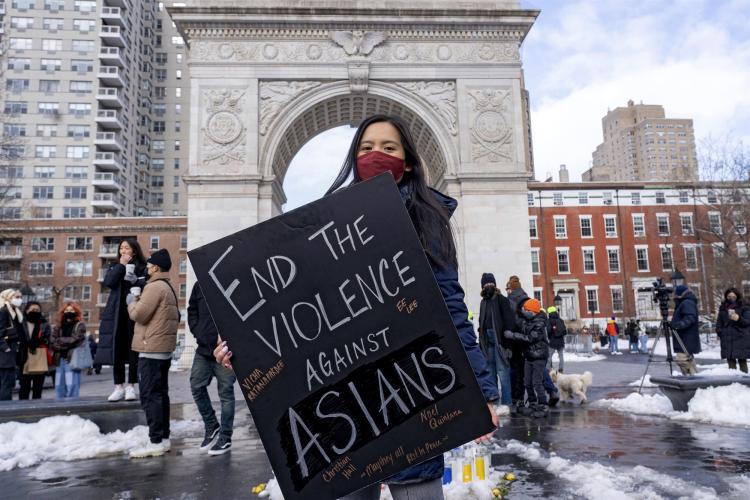Statement by the Department of Ethnic Studies and the Department of Women and Gender Studies on the Killing of Asian Women in Atlanta

While Trump and Biden’s anti-China rhetoric is definitely a catalyst to the recent violence of the past year, we must remember much longer histories of racism that Asians and Asian Americans have faced and continue to face in the U.S. Anti-Asian racism spans over centuries in the U.S: from the exploitation of Chinese railroad workers, race riots targeting Asians (including the attack on Denver’s Chintatown in 1880 and the killing of one Chinese man), illegal occupation of the Philippines, anti-Asian immigration laws from the late nineteenth century till the 1960s (and into the present, including Trump’s Muslim Ban), incarceration of Japanese Americans during World War II, multiple and endless U.S. imperialist wars across Asia, to the ever increasing Islamophobic violence against Muslim communities since 9/11. All these processes continue to position Asians and Asian Americans as perpetual outsiders whose labor can always be exploited. Anti-Asian racism is not new. It is one of the pillars of white supremacy in this country, a country founded on the violence of colonization and dispossession of Indigenous peoples, and the enslavement of African and Black peoples.
As we remember the lives of the murdered Asian and Asian American women, we must remember how anti-Asian racism continues to reproduce itself primarily through racial-imperial heteropatriarchal violence on the bodies of Asian, Asian American and Pacific Islander women, queer, and trans peoples. The first ever anti-immigration and xenophobic law was targeted against Chinese women in 1875 (Page Act). The act prohibited the entry of Chinese and other Asian women as they were seen as “prostitutes” and “immoral” women. Since then Asian women continue to be hypersexualized for consumption and exploitation by white men, as white men see Asian women bodies as simultaneous sites of desire, hatred, and dominance. We know the long history of sexual exploitation of Asian women by U.S soldiers across Asia, from Okinawa to Saigon to Subic Bay, and the portrayal of Asian and Asian American women in U.S. media as submissive, domestic, and sexual. We see these histories as fundamentally connected to the killing of the six Asian women in Atlanta.
• The Center for Inclusion and Social Change
• Counseling and Psychiatric Services (CAPS) is offering free e-Let’s Talk sessions. Students can check in via telehealth for an informal and confidential consultation with a counselor. No appointment is necessary. Students are seen on a first-come, first-served basis at 10-11am and 3-4 pm Monday through Friday.
• Office of Victim Assistance is offering e-Ask an Advocate sessions Friday, March 19th from 2-3pm and weekly from 2-3pm on Tuesdays. CU students, staff and faculty can call 303-492-8855 for free confidential support if impacted (directly and secondary impact) by racist, discriminatory, and or bias-related experiences.
Off-Campus Resources
• The Asian Mental Health Collective
• National Queer & Trans Therapists of Color Network
• Stop API Hate
• Chinese Immigrant Family Wellness Initiative
As we stand against racism, we also reaffirm our stance against racial-imperial heteropatriarchy and misogyny, and call for solidarities to women who are sex workers, who are immigrants, who are undocumented, who are refugees, who work in massage parlors, who are precariously employed, who are poor, who do not speak English, and who are survivors of racial-sexual-imperial violence. Anti-racism struggles need to center the struggles of sex workers and stand against global sex trade regimes, including the U.S. military, that continue to make the lives of sex workers disposable, exploitable, and unworthy.
We know Asians and Asian Americans are not monolithic and homogenous communities, and that different communities have varying experiences of racialization, colonization, and imperialism. Yet, we call for solidarities to all Asian and Asian American communities. While some Asians and Asian Americans are often seen through the trope of the “model minority”, we must understand how these tropes are racist and do not protect Asians against the rage of white supremacists.
Let us fight together to keep decolonial and abolitionist visions at the center of all our collective struggles. We must forge intentional and relational coalitions between Asians, Pacific Islanders, Muslims, Arabs, Black, Indigenous, Chicanx, and Latinx communities, as well as those further on the margins and those who are undocumented, refugees, poor, with disabilities, women, queer, trans and gender nonconforming, and sex workers. We call on our communities to deepen our anti-racist, anti-colonial, anti-imperial solidarities and coalitions in order to disrupt and dismantle white supremacy.
[artwork above: A woman holds a sign at the End The Violence Towards Asians rally in Washington Square Park on Feb. 20, 2021, in New York.Ron Adar/SOPA Images / Sipa USA via AP file]

